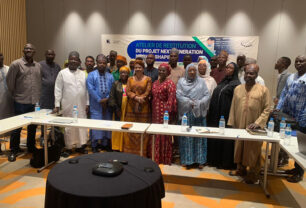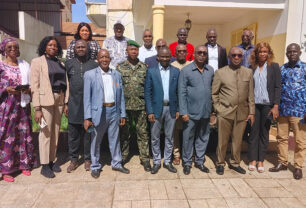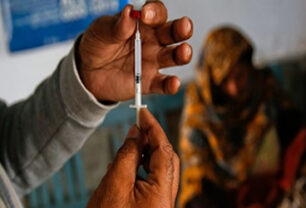The publication named Characteristics of hospitalized COVID-19 patients at admission and factors associated with clinical severity in low- and middle-income countries: an observational study highlights the gap in understanding the clinical characteristics and outcomes of COVID-19 patients in low- and middle-income countries (LMICs), as little is known about patients in these regions in comparison with those of high-income countries. Conducted across six LMICs – Bangladesh, Guinea, Ivory Coast, Lebanon, Madagascar and Mali – during the first year of the pandemic, the study focused on describing the clinical features and outcomes of laboratory-confirmed COVID-19 patients hospitalized in each participating center.
Additionally, the study provided insights into the COVID-19 context in participating countries, detailing demographic characteristics and general information about the pandemic’s status. Bangladesh reported the highest number of cases and deaths, with vaccination programs initiated in Bangladesh, Guinea, and Lebanon during the study period. The predominant circulating strains varied among countries.
The study analyzed baseline demographic and clinical characteristics of hospitalized patients. Among the 1,096 patients included in the analysis, a majority were male with a median age of 49 years. Cardiovascular disease and diabetes emerged as the most prevalent comorbidities. Common symptoms included fever, cough, and dyspnea, exhibiting some disparities among countries. Abnormal lung x-ray findings were reported in most patients.
Finally, around 12.6% of patients were considered clinically severe, with a mortality rate of 6.9%. Guinea recorded the highest mortality rate among the countries studied. The median age at death was 64.5 years, with significant variations among countries. The median duration of symptoms and hospitalization also varied.
Although the existence of different care practices between countries made the comparison difficult, the study’s findings are consistent with those described elsewhere, suggesting that COVID-19-related severity and death are mainly driven by older age.
The publication concludes that further studies are needed to assess whether the organization and quality of healthcare systems in LMICs, and particularly the access to tertiary care, could have had an impact on COVID-19 clinical outcomes.
About NOSOCOR
Faced with the high circulation of COVID-19 within healthcare facilities, Fondation Mérieux and Hospices Civils de Lyon developed the NOSO-COR research protocol to assess the risk of nosocomial transmission.
The Mérieux Foundation conducted the study internationally, in partnership with major research organizations in each of the participating countries, at 6 sites: 4 in Africa, 1 in Asia, 1 in the Middle East.
The NOSO-COR project has documented COVID-19 cases, nosocomial transmission processes and, to some extent, hospital infection prevention and control practices and policies.





